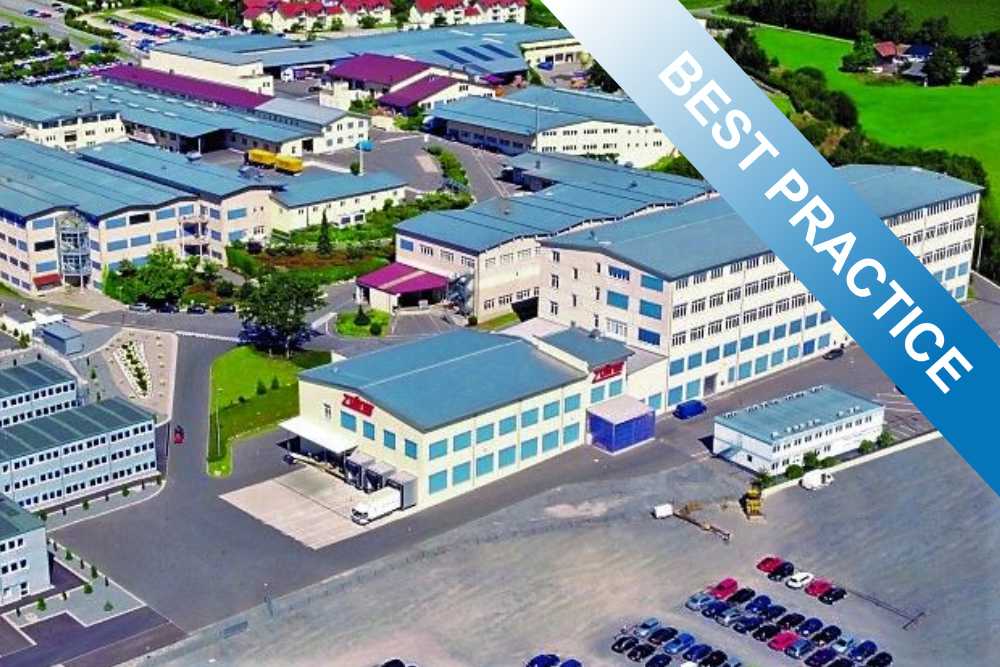
Understanding each other: Intercultural cooperation—an interview by Webasto WORLD with Gerhard Hain
9. February 2018
Germany Training for Zollner Elektronik AG in Costa Rica
1. October 2018The Max Bögl Group, with its 6500 highly qualified employees and an annual turnover of more than 1.7 billion euros, is one of Germany’s largest construction service providers. Quality and innovative solutions are in demand around the world, and thus it is no surprise that Max Bögl also successfully implements projects on the other side of the globe. ti communication is a partner of Max Bögl and supports the group and its employees with intercultural expatriate foreign assignment training.
We spoke with trainer Molly Ng about her intercultural foreign assignment training courses for Thailand for the Max Bögl Group, especially with regard to opportunities and challenges for the construction industry in an intercultural context.
The Max Bögl Group, with its 6500 highly qualified employees and an annual turnover of more than 1.7 billion euros, is one of Germany’s largest construction service providers. Quality and innovative solutions are in demand around the world, and thus it is no surprise that Max Bögl also successfully implements projects on the other side of the globe. ti communication is a partner of Max Bögl and supports the group and its employees with intercultural expatriate foreign assignment training.
We spoke with trainer Molly Ng about her intercultural foreign assignment training courses for Thailand for the Max Bögl Group, especially with regard to opportunities and challenges for the construction industry in an intercultural context.
With which courses were you able to support Max Bögl?
I was able to support Max Bögl with intercultural expatriate training for Thailand for construction workers. The goal of the course was to sensitize employees to the culture of Thailand and the behavior of Thai colleagues and citizens before leaving for their foreign assignment.
What advantages do you think a construction company hopes to gain from intercultural expatriate assignment training?
The majority of participants had either never been to Asia or only on vacation. A construction company can expect of such employee sensitization especially the smooth and rapid execution of complex projects abroad. Since, due to the lack of a common language among the employees from the most varied of nations, they have to communicate with “hands and feet,” a few cultural fundamentals are essential for successful collaboration. In addition, the employees sent on assignment are relieved of any fear or prejudice, which has a positive effect on employee satisfaction.
Which employees were the target of the training?
The expatriate assignment courses were primarily held for construction workers and a few site managers—so not for the management level, which is the typical target group of intercultural training. The group of participants was made up of Germans and—typical for the German construction industry—Czech employees, whereby the training for the Czechs was conducted in English with a Czech translation.
Are there intercultural challenges that especially pertain to the construction industry?
Construction sites in Germany and around the world employ people from the most varied of cultures and nations. The fact that many construction workers frequently do not speak fluent English makes mutual understanding even harder, so they resort to communication using gestures and simple words. The greatest intercultural task is probably communication among themselves—not only at foreign construction sites, but also in Germany. Employees at construction sites communicate in a very factual, direct and goal-oriented manner. This day-to-day project communication typical of Europe can be confusing or misleading, especially for foreign colleagues if they don’t know how to interpret it.
Several construction companies only work in the German-speaking realm. Are intercultural training courses only interesting for large construction companies working on construction sites abroad?
No! Even construction sites in Germany have a great deal of companies and employees from a large selection of cultures. While the German employees here don’t need special expatriate training, intercultural training can lead to a sensitization of participants and thus contribute to conflicts being more easily solved or not even cropping up at all.
What is the difference between intercultural training with construction workers and training with managers and executives?
In training courses for executives, the focus is generally on human resources management, negotiation strategies and the “right” way to deal with foreign executives. The intercultural training courses for construction workers are much more specifically tailored to the topic area. One important aspect was also the various interpretations of work precision and tempo in Germany versus Thailand. In addition, training for skilled workers is even more interactive and designed using even more case studies than is already the case for managerial training.
Do you think further support of expatriate employees is a good idea?
Definitely! Even having completed an intercultural expatriate assignment training course, questions could pop up abroad, and if they do, it is good if the expatriate employees can turn to experts. ti communication offers follow-up training and coaching, which, thanks to its international network of trainers, can be conducted anywhere in the world—including Thailand.
Are you interested in country-specific intercultural training? Either join one of our open courses or ask us for an offer tailored to your needs!
Molly Ng is Sino-Malaysian by birth. As an intercultural trainer and adviser, she has several years of expertise in the design and implementation of intercultural coaching and training measures in German-Asian cooperation. In the process, she supports enterprises in their business development and knowledge transfer in East and Southeast Asia through customized intercultural preparation and support. The qualified chemist has work experience in the industry of Southeast Asia. See her profile…






